Laughter worldwide: Comedy improv in the time of Covid-19 – an interview with Hoopla director Steve Roe
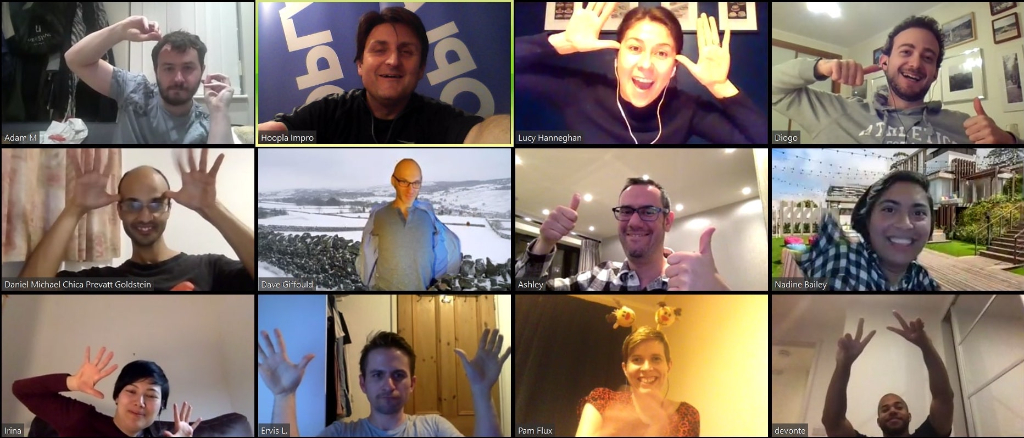
Hoopla theatre company was founded 14 years ago with the intention of uniting people through comedy improvisation. It now stands as the biggest improv comedy school in the UK and provides a multitude of workshops, courses and classes for people from all walks of life, from acting novices to corporate team-building clients. The ongoing pandemic has pushed the school to make the transition to Zoom, with the fun classes continuing seven days a week. We caught up with director Steve Roe to ask him where the idea for Hoopla came from, the challenges of moving everything online, and what students can expect from their improv experience.
Can you tell us a bit about where the original idea for Hoopla came from, and how it developed into the UK’s biggest improv theatre school?
The original idea probably came from GCSE drama back in 1995! I grew up in South London and we had an awesome drama teacher (Debbie Price) at Rutlish High School. All my best friends came from drama groups and GCSE drama from back then.
Years later after we were back home in London after finishing university; we were all finding adult life too serious and were missing the playfulness of what we used to do at school. So we just started running something (about 14 years ago) for fun. That’s always been the idea of Hoopla: improv for fun. We found that our friends were coming too as they found it a good way to have a laugh after work and meet new people in London. Then it was friends of friends. Then it became a big thing and we were running classes and shows all over London.
Making the transition from live classes to Zoom must have been quite a challenge. How did you adapt the sessions?
Yeah that was crazy. It happened really quickly and was really confusing. Pretty much the entire international improv scene went online in the space of a week back in March 2020. I think there was a huge feeling of “We are all going to work this out somehow.” There was a lot of swapping of knowledge and techniques between companies and across the world, and there is now a big international improv scene.
Basically we adapted by doing and trying things out lots. At first it felt super weird but, like everyone else, it gradually started to feel more natural. We actually found most of our games can work online, especially when using Zoom features like breakout rooms, spotlights and playing with video going off and on. On online improv, having the camera off is the equivalent of being offstage and putting it on again is the equivalent of making an entrance.
We even started to find games that actually worked better online. For instance, this week we’ve been using screen sharing to show film trailers of 1950s sci-fi movies, and then the improvisers have been improvising the rest of the film.
What kind of techniques do you use to use to make students feel comfortable, and what skills do they learn from the courses?
There’s loads of skills people pick up from improv, including confidence, spontaneity, creativity, listening (yes, and collaboration), character and scene work. And most of all it is about playing. If work is sending people in one direction, then improv gives them a break and the ability to play in a different direction. Improv is really good for teamwork too and because of that we’ve been doing quite a lot of online corporate training too.
For techniques, we teach through games. We don’t go in for lectures and boring Powerpoints. Any point we are trying to make we’ll make through demonstrating a game and getting everyone to play it together. For instance, for listening skills we play a game called Story Swap, where one person starts telling a story about a holiday they were on, then someone else takes over as if they were there, then it passes around the group so they work out a new story together.
To help people play we might play games like Sports Commentator, where three improvisers are doing a real thing at home like making a cup of tea, while three others commentate like sports commentators at the Olympics. It’s good fun and, when there are so many rules about what we can and can’t do at the moment, it’s nice to be in a place where you can be stupid.
You have reached a broader worldwide audience through being online. Has it surprised you how many people have engaged with Hoopla during the pandemic?
Yes! In March 2020 I thought it was game over, and started looking for other jobs, but I’m a total improv savant and can’t do anything else. Then when online improv popped up we decided to just commit to it fully and make the most of it. I think that’s been true for all small businesses this year – it was awful seeing something that we’ve built up for years get closed, but then small business owners have a mindset for trying out things and battling on. So we just tried out different things until it worked.
On Saturday we had someone along from Las Vegas, someone from Nigeria, and someone from New Zealand – all in the same class. That wouldn’t have happened before. The person with the worst Internet was from Milton Keynes!
What do you hope that people take away from the courses and workshops you offer?
Just to have had some laughter for a couple of hours! And some social contact! Being trapped in four walls with no socialising and no laughter is horrible, so we’re hoping to be one of many things that helps that.
Have there been any “comedy gold” highlights from your classes over the years?
Yes. Oh gosh pretty much every single day someone does something that I’ve never seen before and makes me laugh really hard. I think everyone is funny. Everyone. There’s always some surprise I haven’t seen before.
My favourite thing is teaching people improv for the first time. Here’s two of my favourite little exchanges from people’s first ever improv scenes last week:
Suggestion: Job interview
“So tell us a bit about yourself.”
“My name is Josh. And I can cook bacon.”
“Would you say that is your defining feature?”
“Well it depends who you ask.”
Suggestion: Door to door to salesman
Opening line: “You look like the kind of man who could do with a long broom with a tiny sword on top.”
“I am! How much?”
“More than you could afford!”
“Then this interaction has been a waste of both our time.”
Do you think that you will continue to offer online sessions once live theatre returns?
Yes. It gives us the ability to bring improv to people outside London. There’s loads of people around the world who are interested in improv and theatre, but don’t have anything near them, so I think online will carry on after the pandemic.
The classes are inclusive and offered to a diverse audience including those with disabilities. What are some of the ways you fulfil these learning experiences?
First of all we’ve got a big scholarship programme, so we give free or discounted places to people who need them. There’s no complicated form or anything, they just have to email us and we book them in.
Then, working with people, I think top of the list is talk. We don’t second-guess what people need, we just chat to them and ask them, as everyone is different. There’s always a solution to things and we can always adapt exercises to suit people. For instance, we have a partially-sighted improv friend who wasn’t able to see faces so well on Zoom so we also started running some online audio-only radio plays.
What sort of things have you been doing to keep yourself going through lockdown?
Looking after my three year-old son! If I’m doing improv things or improv admin things then I’m doing that. Luckily we have the same interests: parks, Lego and Monsters Inc.
Other than that I suppose my other hobby is deciding if I should go out for a run or stay in and watch Cobra Kai.
Do you have any exciting post-pandemic plans for Hoopla that you can share with us?
Yes: open again! We love online improv and we love real-life improv too. So the main plan is to open safely, when we can, and get our live shows and classes up and running again. After that we’re back to improvising again.
Thank you so much!
Ezelle Alblas
For further information about Hoopla and future events visit here.

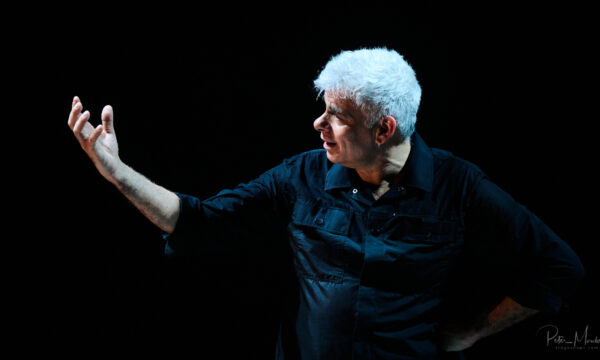
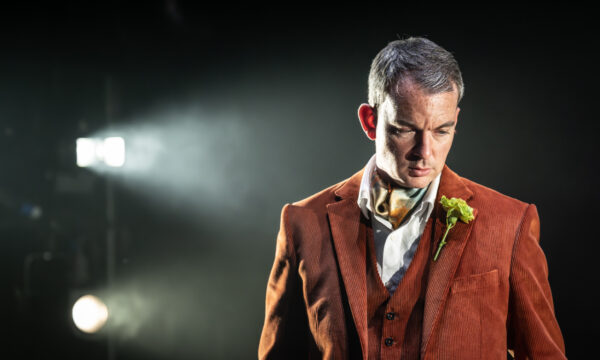
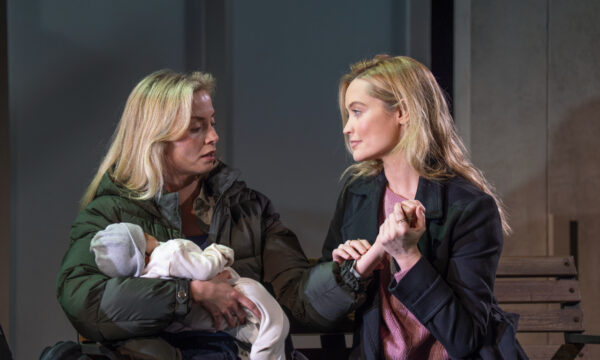
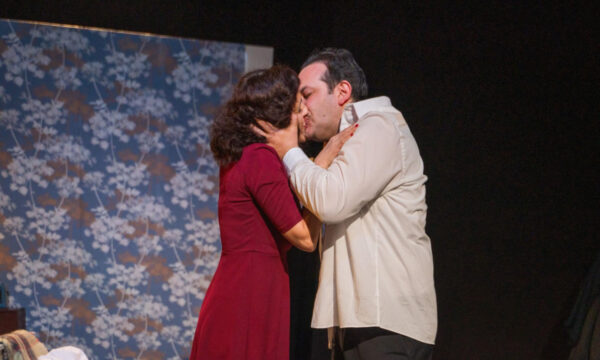
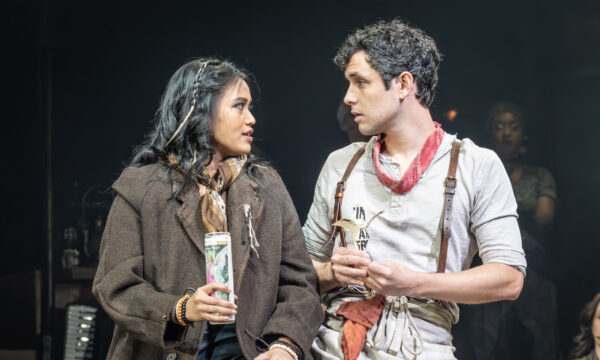
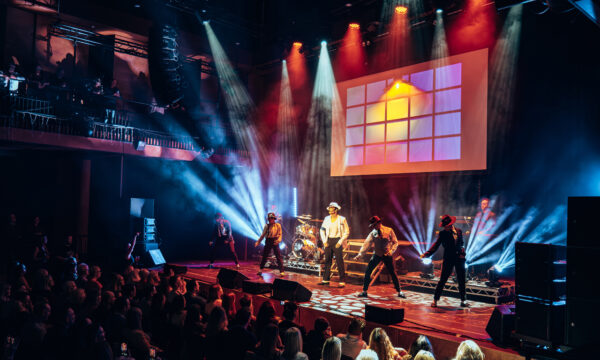

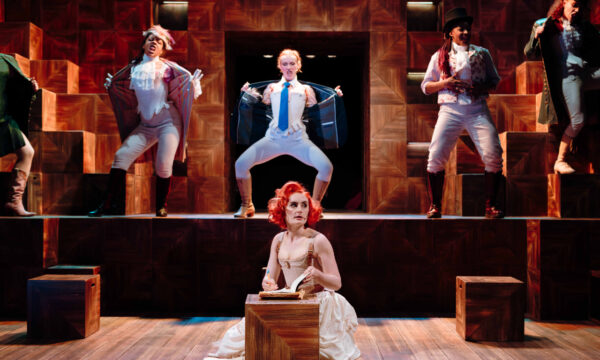











Facebook
Twitter
Instagram
YouTube
RSS